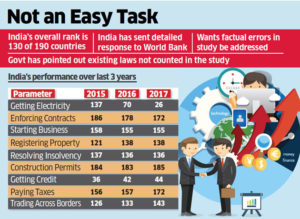
The Ministry of Corporate Affairs plans to simplify the existing processes for setting up a company, according to a public notice.
In this regard, the ministry — which is implementing the Companies Act — has sought views from the stakeholders.
The government has already centralised name reservation and incorporation services. There were more than 11.34 lakh active companies at the end of August.
Now, comments have been sought for “further simplification of processes aimed at further easing the starting of a business,” the ministry said in a public notice.
Registration of new companies is being done by way of the integrated SPICe form.
The procedures for obtaining DIN (Director Identification Number) by the proposed directors, name reservation, incorporation as well as allotment of PAN and TAN have been integrated — a move that brings down the time taken for starting a new business under the companies law.
According to the notice, DIN allotment or name reservation services can also be done independently by stakeholders “who wish to proceed with incorporation in a piecemeal manner.
Stakeholders can submit their comments to the ministry by November 5.
SPICe (Simplified Proforma for Incorporating a Company Electronically) is aimed at providing speedy incorporation related services.
Read More about SPICe (Simplified Proforma for Incorporating a Company Electronically)







